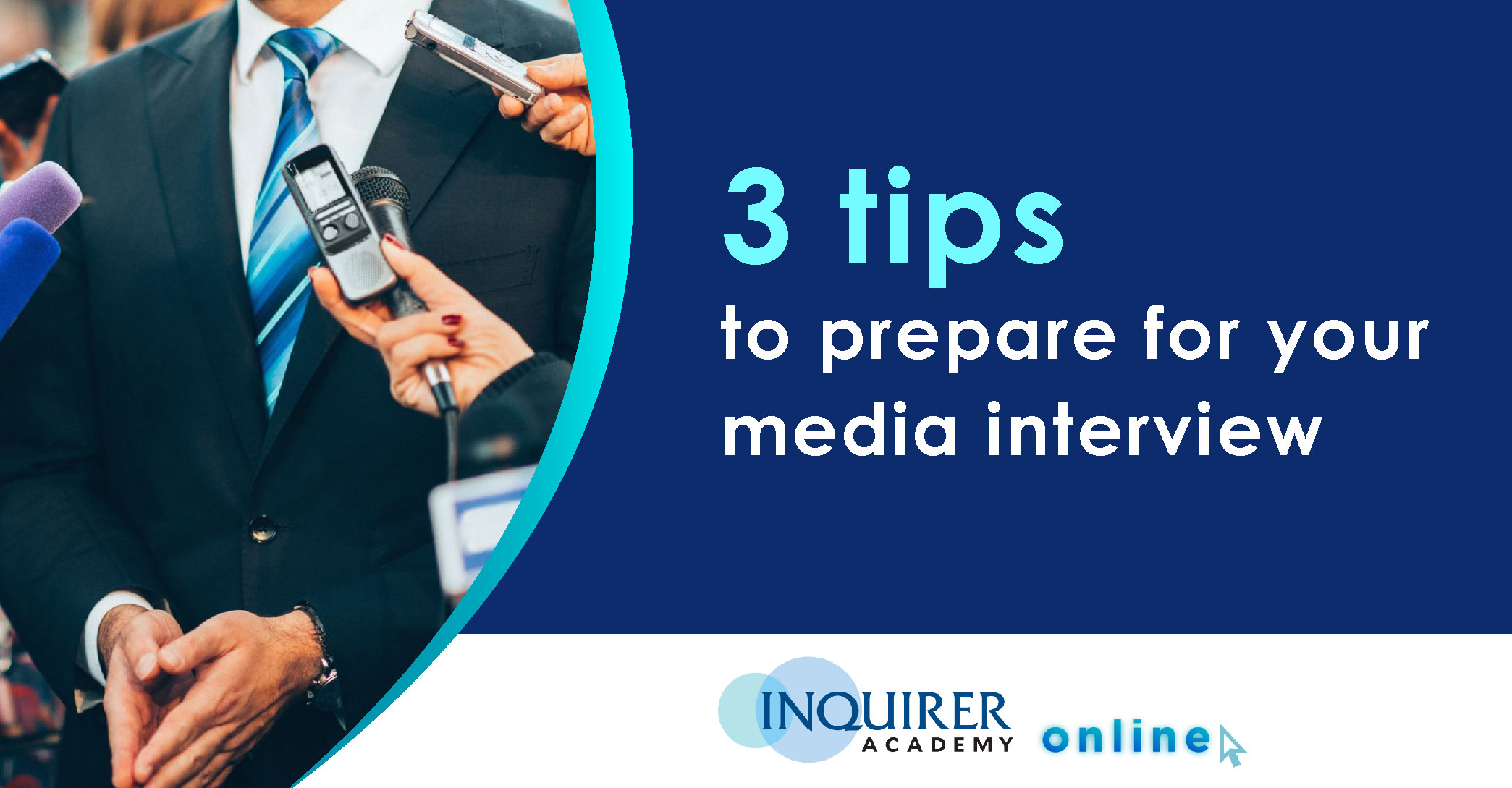Interviews with media organizations can be daunting. Will I be nervous? Will I remember my notes? What if the reporter/ interviewer asks something that I’m not so familiar with? Will I be able to represent my organization well? These doubts and negative thoughts can be expected, but how do we deal with them?
We asked Neil Mercado, our resource person on media and communication, for some tips on how to prepare for any media interview. Here are his tips:
1. Know your audience—and yourself, too
The best way to prepare for a media interview is by coming in knowing fully who you are as a spokesperson, as an organization, as a group or as a business. Knowing your identity will help you craft your communication objectives and ensure that whatever question is thrown your way, your responses will always be consistent.
Some media outlets also do have a target audience and knowing who the audience is prior to the interview—and forming your communication objectives based on that target audience—might spell the difference between an effective and ineffective interview. If your goal is to inform, make sure to say how that information affects the audience. If your goal is to introduce a program or an organization, make sure to note how your programs will help the audience. Remember, people tend to listen, absorb, react and respond more to a message that has an impact on their daily lives.
2. Prepare your topic points
Like any other interview or speaking engagement, coming in prepared is very important to ensure that your message will clearly reach your audience. Prepare one or two main topic points: What’s your goal? Is it to inform? Is it to inspire? Is it to sell? Is it to introduce your organization and your programs? You need to be able to deliver your message in a coherent way and sticking to one or two topic points will be helpful in emphasizing your message.
In line with preparing your topic points, think of ways to keep your answers short and simple as this is also an effective way to convey your message in an understandable manner. This ensures that your message reaches even those with a short attention span. Expound only after you have mentioned your key message. Moreover, leaving out jargon and technical terms will also avoid confusion.
3. Know the nature of the interview
The presentation of the interview matters as much as the content of the interview. Thus, it is important to ask the interviewer what the interview is for as well as the platform and format it will be presented in. Is it a mere sit-down interview? Is it for a news report? Knowing the nature of the interview will help you establish the atmosphere and tone of your responses.
Moreover, knowing the nature of the interview will also guide you on how you will present yourself, which includes dressing up or not. Remember that the public’s perception also matters, particularly when you want to come across as credible, trustworthy and passionate. INQ
Mercado will facilitate an eight-hour virtual workshop titled “Media Interview 101: Strategies for Preparation and Participation” on May 15 to May 16.
For more information, you may write to ask@inquireracademy.com or send an SMS to 0919-3428667 and 0998-9641731.
For your other online learning needs, Inquirer Academy could assist you in designing and facilitating a virtual workshop, a webinar or a self-paced online course for your organization.
The author is the executive director of Inquirer Academy.
